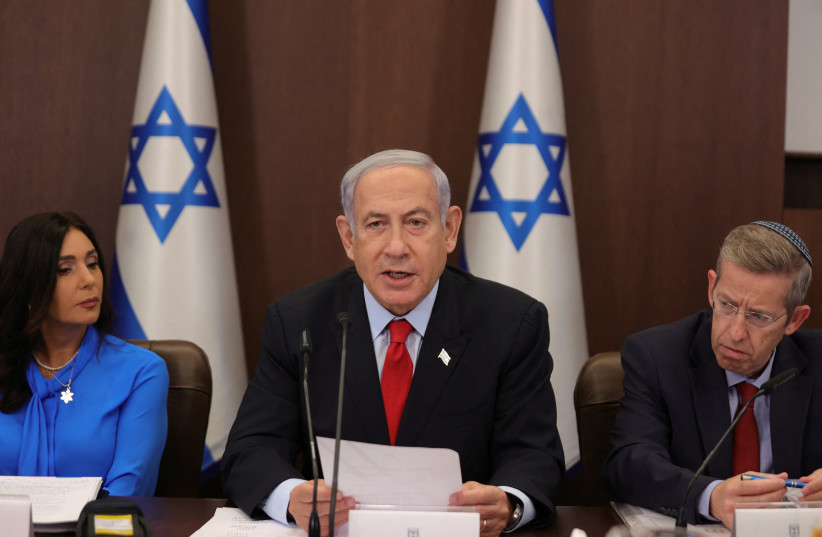The composition of the Judicial Selection Committee will be the next, and likely final, aspect of the judicial reform, Prime Minister Benjamin Netanyahu said in his latest interview with foreign press on Sunday, speaking to Bloomberg from his office on political and economic issues.
The interview was published shortly after the High Court of Justice issues an injunction against the Incapacitation Law that it would not apply immediately.
“That’s basically what’s left — because other things I think we should not legislate,” he said, possibly talking about the override clause, another part of the reform which cause backlash from the opposition, and in a nod to the Knesset’s passing of the Law to Cancel the Reasonableness Clause - which the High Court is set to hear arguments on next month, and that caused nationwide protests.
The prime minister described his goals for the remainder of the reform, calling to “restore” a balance from what he says is “the most activist judicial court on the planet” and to prevent the Knesset from being able to “just knock out any decision that the court makes.”
The interview also discussed the economic - Bloomberg’s flagship readership - troubles that have resulted from the coalition’s reforms, including a lowering of the country’s credit rating and the devaluation of the shekel.

Netanyahu dismisses concerns
To that, Netanyahu sought to preach calm, calling the complaints that the reform will destroy democracy “nonsense,” and that “Israel will come out stable, successful, and democratic - at least as democratic, in my view more democratic.”
He also said that “There’s noise in the short-term markets, but there’s clarity in the long-term markets.”
Netanyahu dismissed fears of civil war and offered a hopeful message that the opposing sides “will mesh.”
The prime minister also expressed confidence in Bank of Israel Governor Amir Yaron, who has been a critic of judicial reform.
Yaron has said that he will make a determination next month on whether he wants to stay on, assuming the prime minister gives the go.
Netanyahu refused to confirm whether he would renominate Yaron to continue his role as governor, though he called him “an excellent central bank director,” admitting he has neither given it much thought nor spoken to Yaron about it.
The prime minister said that he believes in upholding the independence of the Bank of Israel. Pressed to this in a question about whether he agrees with the Bank’s decision on interest rates, he said whatever the public position of the Bank is he supports it, irrespective of private debates they have beforehand.
Netanyahu has given near-weekly interviews to English-speaking press on judicial reform, while not speaking to Hebrew media about it on the record.
Opposition leader Yair Lapid (Yesh Atid) tweeted in response to the Bloomberg interview that “Netanyahu continues his campaign of lies to the world. Saying ‘We will make a change in the Judicial Selection Committee and then stop,’ is like saying, ‘We will wipe out Israeli democracy completely, destroy the army, destroy the economy, and then stop.’”
The Kaplan Force protest group said in a statement afterward that “We will block any attempt to change the committee.“ This is as protests have continued into the 32nd week.
According to sources, negotiations on the composition of the committee have stalled, despite the ongoing Knesset legislative break.
The Likud sent out a clarification later, saying "Prime Minister Netanyahu will make a great effort to reach an agreement with the opposition regarding the Judicial Selection Committee.”
